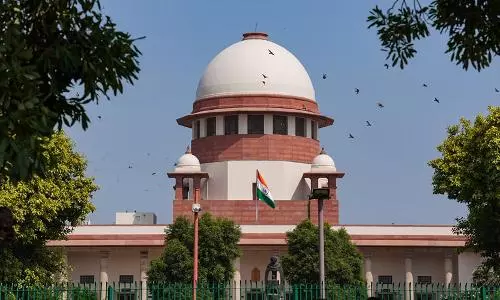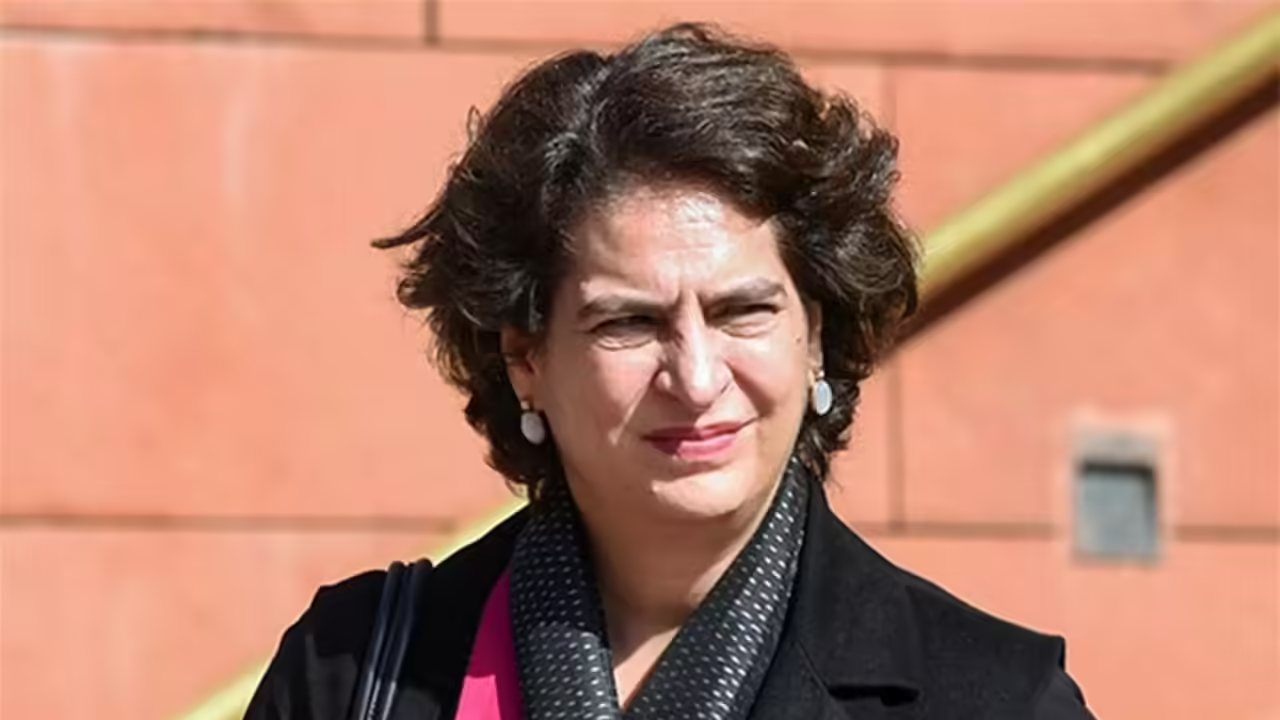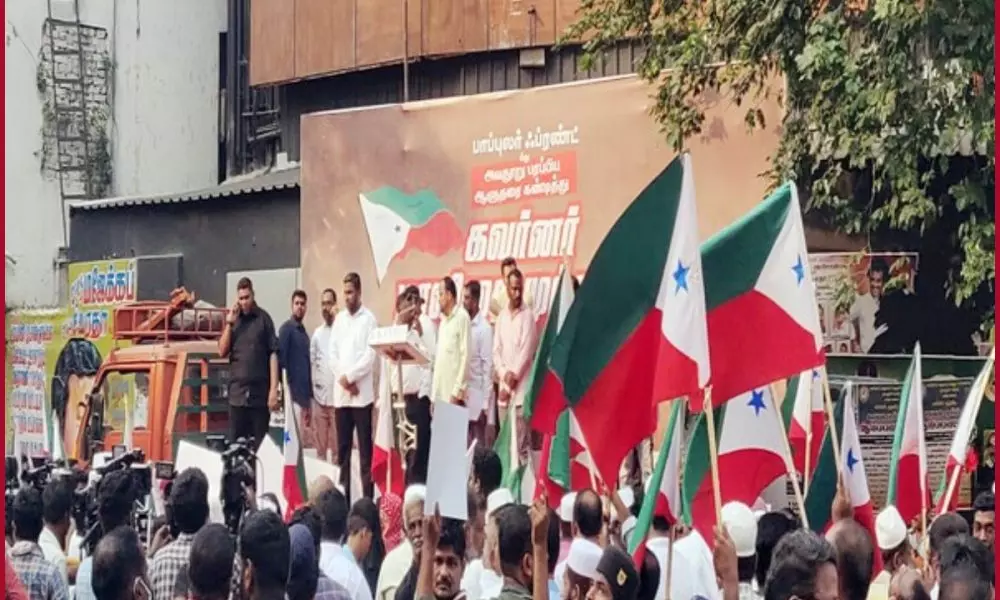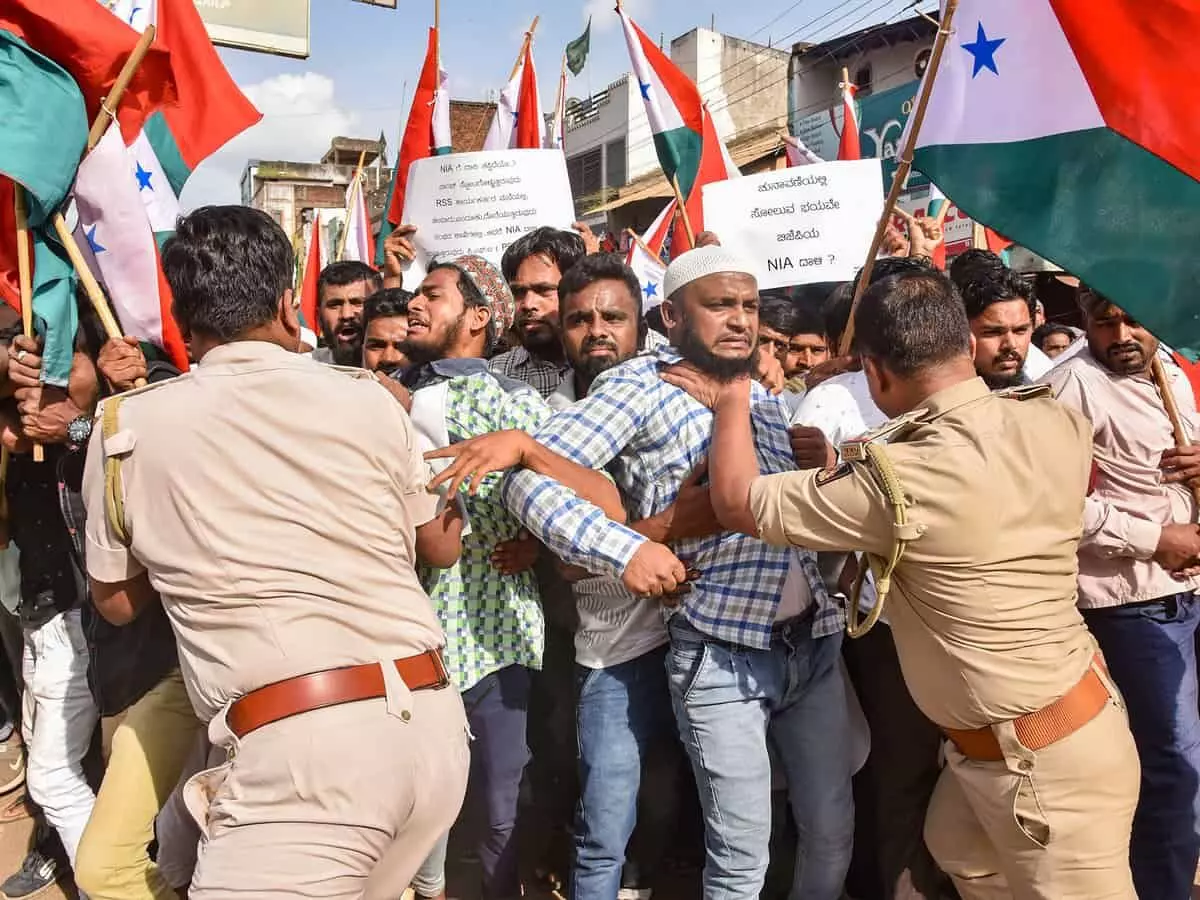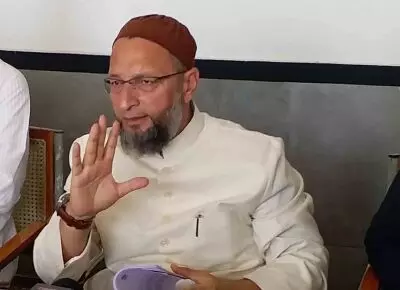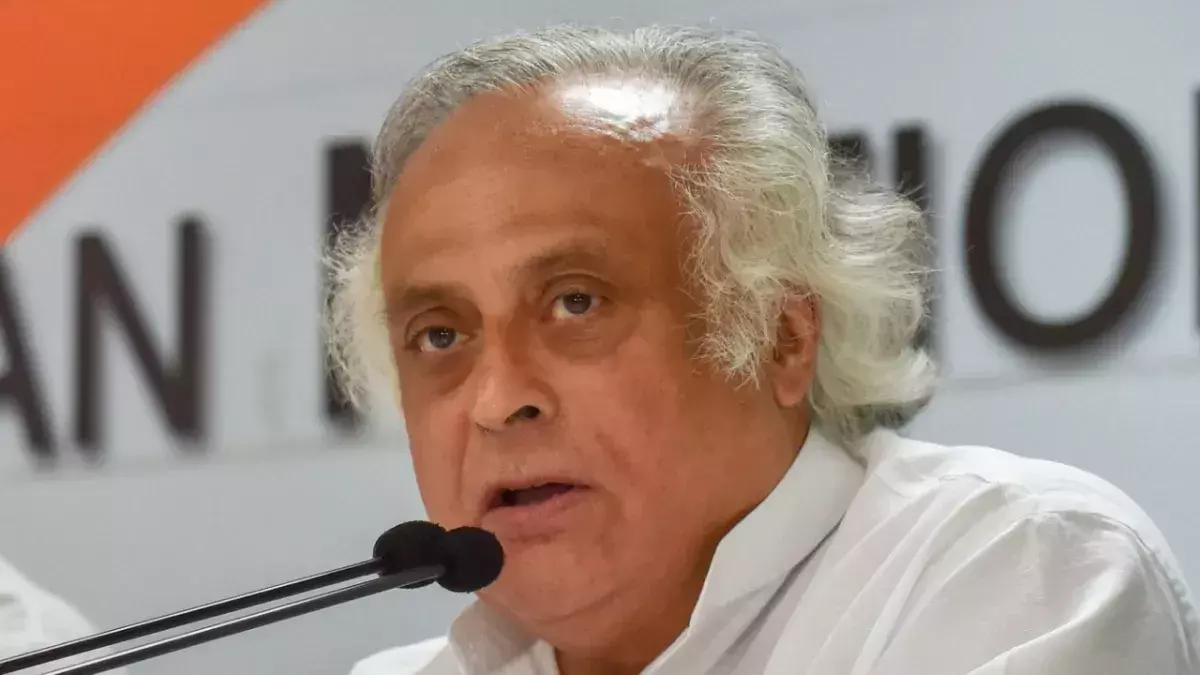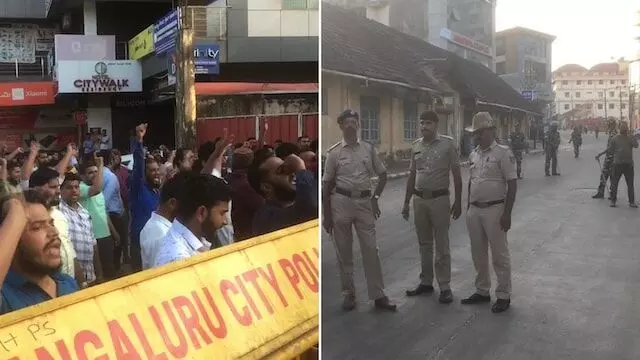
Taking another route to politics of extermination
text_fieldsRepresentational.
The political rumours that have been buzzing in the air for the past few weeks have turned out to be true. After days of NIA raids and mass arrests in various parts of the country, the Central government has banned the Popular Front of India (PFI) and its affiliates for five years. Rehab India Foundation, Campus Front of India, All India Imams Council, National Confederation of Human Rights Organizations, National Women's Front, Junior Front, Empower India Foundation, and Rehab Foundation Kerala have been banned along with their parent organisation. In the extraordinary gazette notification issued by the Ministry of Home Affairs regarding the ban, serious allegations have been made against PFI. They include the charge that the organisation is undermining national security and peace by creating insecurity among the people. According to the notification, the Ministry has received evidence that some of the founders of PFI maintain links to the banned organisation Students' Islamic Movement of India (SIMI). Its operatives are allegedly involved in terrorist activities carried out by IS in Iraq and Syria as well as illegal remittances from abroad. The incidents of chopping the hand of a Kerala college lecturer accused of blasphemy and Abhimanyu's killing also find a place in the accusations.
After the ban, the leaders announced that the organisation was disbanded. Now, they can either yield to the Modi government's tyranny or recover the organisation via legal means. The BJP-ruled states of Uttar Pradesh, Karnataka, and Gujarat had already demanded that PFI be banned. If we consider the developments of the past days in light of this, the actions of the Centre are not surprising. In fact, everything is happening as expected. Therefore, it is only natural that the BJP and the Sangh Parivar are happy about the development. Meanwhile, secular political movements and community organisations have different opinions on the matter. In general, the country's secular segment says that a ban is not a solution. Although they express various reasons and logic for it, most think that the RSS should have been banned along with PFI. This standpoint is based on the argument that PFI and the RSS are two sides of the same coin. While this argument makes sense at first glance, it is flawed in detail. The very proponents of that doctrine have admitted this earlier through their words and actions. What sets the Popular Front apart is its unabashed resistance to the Hindutva doctrine based on politics annihilation.
Hindutva followers have the backing of the ruling class of the country for any of their chariot race. How absurd would it be then to ask such a system to ban its own ally along with PFI. Apparently this argument is being made with total knowledge and firm conviction that the RSS will never be banned. Meanwhile, the stance of national leaders like Lalu Prasad Yadav, who has openly said that the RSS should be banned before the Popular Front, is different. There are those who have criticised the PFI ban by linking it with the country's democratic values. Putting a stop to organisations by imposing bans fundamentally undermines democracy. It also complicates the existing problem. This position put forward by left-wing movements including CPM, community organisations like Jamaat-e-Islami, and some human rights activists will probably make the new political context more open to debate. Sitaram Yechury's question about the (lack of) result in banning the RSS three times in the past is also relevant. In fact, it is recognisable as part of the Sangh Parivar's extermination strategies. It has already been started against those who speak against the hate politics of Hindutva. The Modi government started putting a leash on debates and criticisms on the very first day of assuming power. All those who violated the ban were thrown in jail after being labelled as 'traitors' and 'urban Naxals'.
Among them, people like Stan Swamy succumbed to death in prison and tens of thousands are awaiting trial. It includes the sick, differently abled, and elderly. The ban of PFI is in continuation of this political assassination which is a muzzling of democracy. This is not to represent a total endorsement of with the overall performance of that organisation. Both the hand amputation case and the murder of student Abhimanyu in a campus in Kochi are criminal offences. Our penal code also has provisions to deal with such anti-social activities. However, when the organisation and its associated elements are banned in the name of all this, it cannot be seen as a step by the government for justice and peace. It can only be evaluated as ethnic hunting which is a warning to democratic movements.




